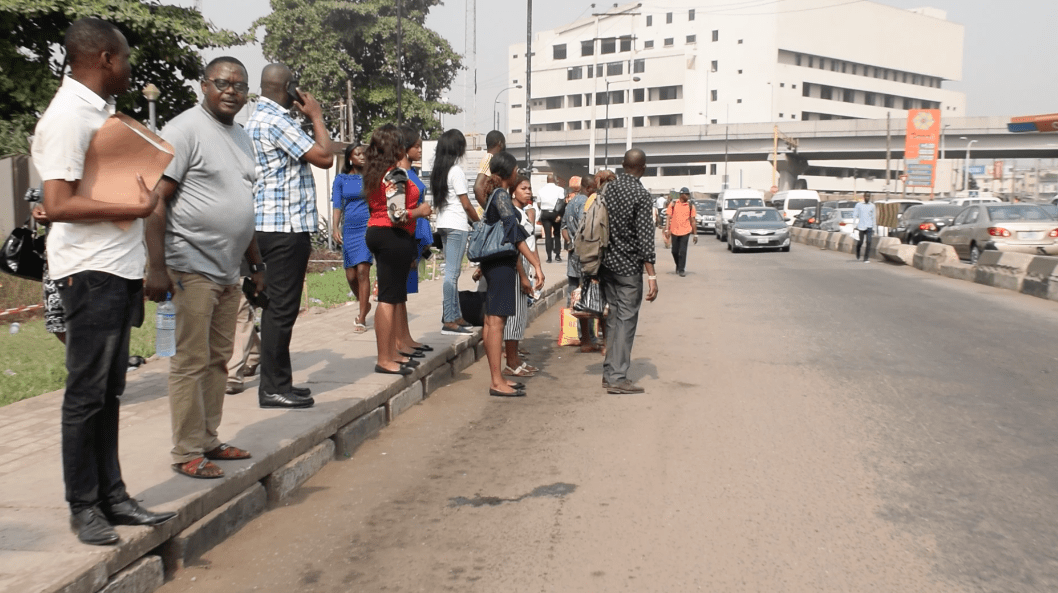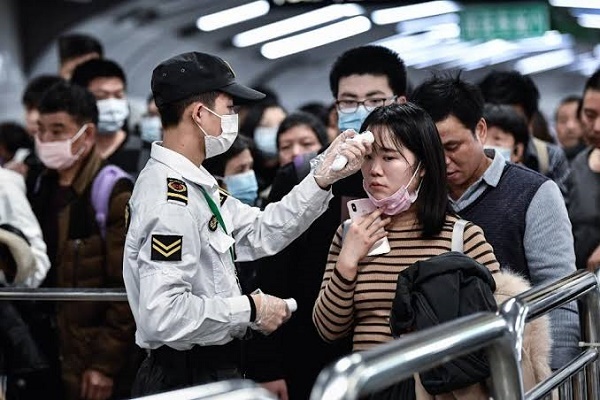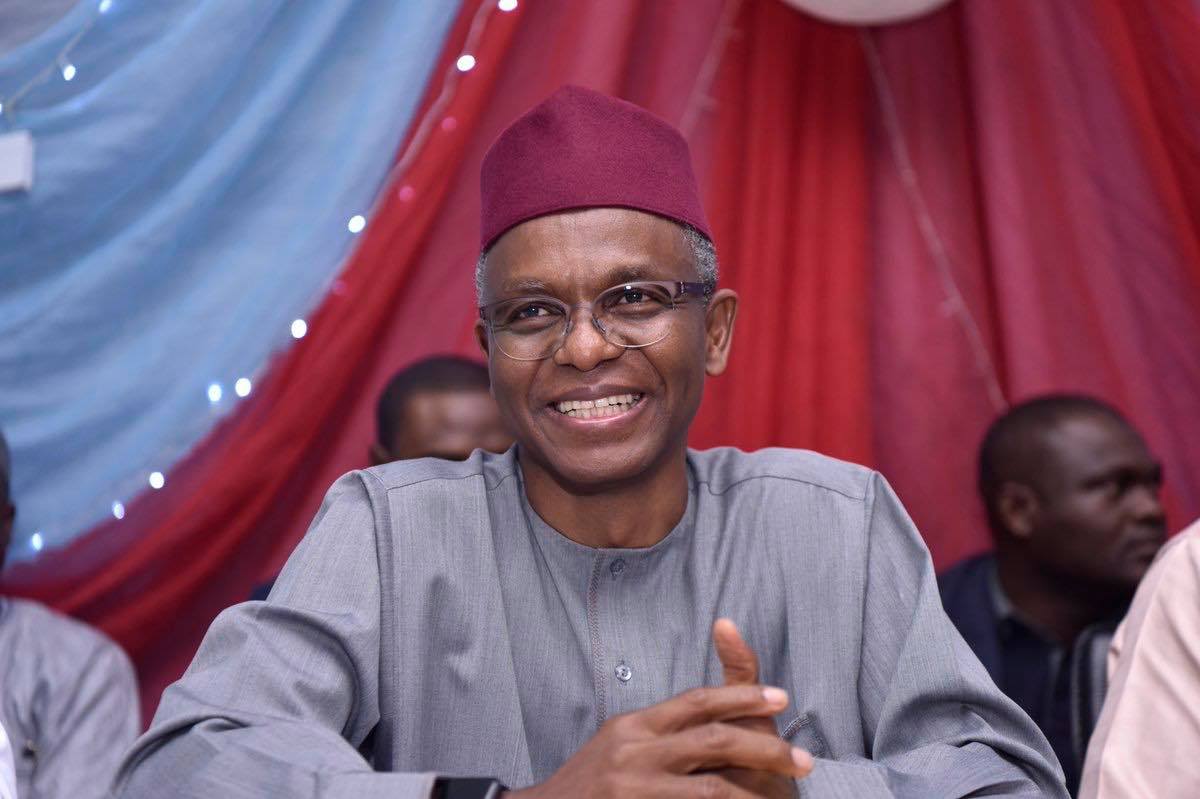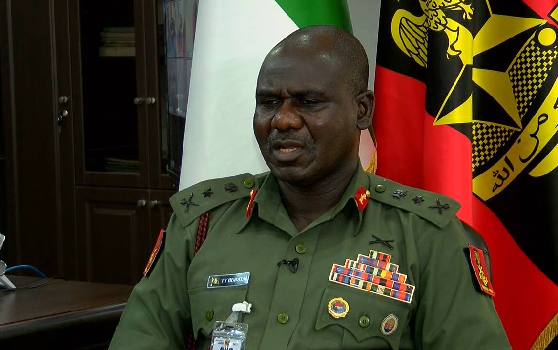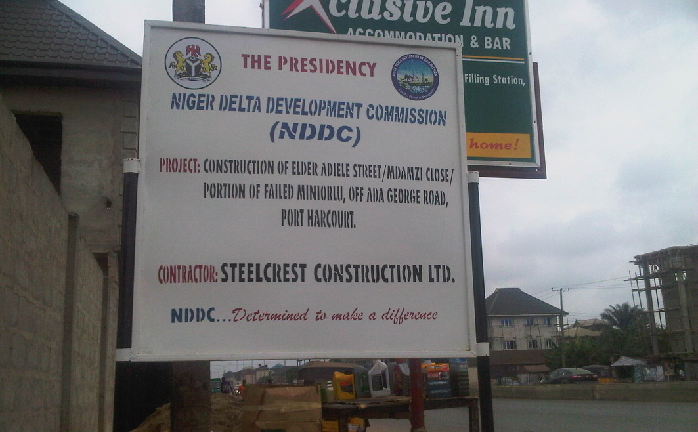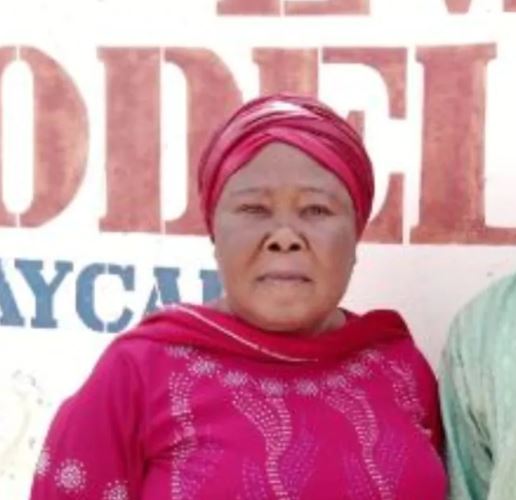Pic .15. INEC Chairman, Prof. Mahmood Yakubu briefing on 2019 rescheduled 2019 General Elections at the International Conference Centre in Abuja on Friday (22/02/19).
01609/22/2/2019/Sumaila Ibrahim/NAN
With the rash of protests that have greeted the draconian and militaristic purported deregistration of some political parties in Nigeria, I believe it is high time to alert the INEC and every right-thinking Nigerian that there is a possibility of a constitutional crisis brewing from the act of recklessness and impunity.
It is trite to mention that the Buhari administration has put itself out to the world and is now being questioned on several fronts locally and internationally for its attempt to clamp down on dissenting voices, muzzle social media, proposing death by hanging for ‘fake news and hate speech’, and now what is being interpreted as the wholesale closure of the political space against the voices of young people and alternative political parties. It cannot be overemphasized that plurality in the political space is a necessary cornerstone of democracies and every country worth its name should allow the participation of multiple parties by setting clear, attainable, reasonable, equitable and logical benchmarks for participation in that space, underpinned by a respectable communication strategy.
My concern presently is that I can see INEC’s ill-informed unilateral action leading to a constitutional crisis and a stonewalling of Nigeria’s democracy. If it does not happen immediately, it surely will, especially if and when strongman Buhari leaves the scene. In short, Nigeria may not be able to conduct elections again. INEC and the government(s) that sponsor(s) it may as well continue to bully the space and railroad those they see as small political players. As usual, the electoral regulator may ignore court judgments and processes. INEC may, just like we have seen with some other government institutions and functionaries, continue to ridicule the judiciary, but one day their cups will be full and Nigeria will find itself in a political and democratic cul de sac.
This recent action has thrown up the ingredients of a constitutional crisis and it is a wonder if anyone else is following this logically and emotionlessly. For now, INEC and the establishment has been able to corral the opinions of the majority of ordinary Nigerians behind its illegal, hurried and undemocratic decision, and as usual, some of the ‘lucky’ political parties are hoping to make short term gains but it is only a matter of time before some of the rash of legal cases begin to scale through, stopping the entire electoral process and thus Nigeria’s democracy right in its tracks. I will explain how shortly. In my view INEC has crossed the Rubicon, shot itself in the foot and exposed its ugly underbelly. Some of the young parties and players will assume the position of the biblical David and who knows when the finely honed beach pebble will pierce the forehead of INEC’s Goliath; after all Goliaths are known to be bulky, sluggish, clumsy, slow, unorganized, uncoordinated and wont to deploy the fear factor while bullying their ways to infamy
Advertisement
Here are the reasons:
1. The results of 2019 elections upon which INEC based its decisions has not been officially released anywhere. The results upon which people were declared as winners do no tally nationwide and makes no sense in many instances. There is therefore no empirical basis that is evident to all, to show the world that indeed all the ‘deregistered’ parties did not meet the criteria in all the elections conducted SO FAR. INEC is NOT ready to release these results as a result of a myriad of inconsistencies which brings its credibility, believability and efficiency into serious question.
- The election upon which INEC has based its decision was widely discredited by every external and most local observers and the international community. It may have been better to conduct a cleaner election that doesn’t impugn the integrity of the so called umpire before taking such a decision as this. I view this action as plain bullying.
3. As has become obvious in the cases of at least KOWA Party and PPA, INECseems not be keeping accurate records. INEC is unaware that some parties had met the requirements set by the constitution in times past or even in 2019. Perhaps they have now interpreted the law as starting from 2018 but the supreme court must interpret the intent of that constitutional amendment. - There are challenges around whether results obtained by candidates who have now been removed by the Supreme Court, should count as valid to qualify a political party as legitimate under the new amendment, even after those results have been proven to be fraudulently obtained by the courts.
- There will be multiple court cases and class actions around this decision at national and subnational levels such that at any moment, court judgments will come up that invalidates elections, or stops them from holding in the first place. This will start with upcoming local government elections in some states, as well as the two upcoming guber elections. No party should be excluded based on fuzzy, opaque reasons by INEC. Total transparency around this action is required and must be obtained.
- A long, drawn-out constitutional case will ensue in general, towards the interpretation of the amendment that INEC has relied on. Though it may take time, but a verdict may likely be obtained, that overturns INEC decision based on constitutional interpretation. That could torpedo the 2023 elections and even do more damage.
- The questions of electoral law amendments (towards e-voting and e-transmission of results) is exhumed all over. These are issues that INEC has tried to avoid over time. The imperative is enhanced now, because INEC has based a decision on an election that is widely known, and pronounced, to be totally flawed. The use of card-readers was jettisoned in the 2019 elections in many areas and it needs to be determined whether this is a breach of process or not. This action calls for a total review of the 2019 elections in order to prevent a miscarriage of justice.
- INEC officials who have been going around denigrating and eroding the good will of young, licensed parties as ‘commercial’, ‘unlikely-to-survive’, ‘unlikely-to-win-elections’ or ‘without structure’ etc, need to be brought into account to defend their statements and explain why they have done violence to these parties. INEC needs to learn serious lessons around the management of its most important stakeholder – political parties – and lessons need to be learnt for the future.
- In considering the letter of the law, as contained in the constitutional amendment that INEC has relied on, it is evident that INEC should wait for ALL elections to be conducted at every level in the nation (it doesn’t matter who is to conduct such elections) before taking the decision that it has preemptively and unjustly taken. INEC has to explain the reason why it breached a clear constitutional provision and also account for the unending damage to the nation’s electoral wellbeing that has fallen out from its action.
- There are at least two states that are yet to conduct their elections (Ondo and Edo States are upcoming this year). The constitutional amendment is clear that all state elections must be conducted. It is impossible to known if any of the parties so ‘deregistered’ will be able to pull the required numbers in any of these states.
- Now that INEC has damaged the franchises of these parties, it may be impossible for them to gain credibility and achieve the required numbers even when reinstated. INEC has to pay for damages and account fully for its reckless action and statements.
- The allegation that the INEC is subservient to every ruling party, and that this action of illegal ‘deregistration’ is designed to strengthen the status quo and evolve Nigeria into a one-party state also comes up. The latent question of how the Chairman and other executives of INEC are appointed comes up. INEC cannot be judge and jury when it is unclear how it could ever achieve independence if paid by executives in the ruling party. The fundamental question of how to dis-link INEC from partisan politics to truly become an unbiased umpire is another constitutional issue that should and will be explored.
- The issues of modernity and use of technology in the nation’s electoral system is also laid wide open. Nigerians finally have an opportunity to determine how their elections should be run to ensure the results declared are close to reality. INEC has avoided the need for all its processes to be run with technology. A huge debate ensued around the use of servers in the Atiku case. Now that it is obvious that INEC has issues around record keeping and analytics, there is a need to help INEC to help itself.
- The question of importation of foreigners to vote in parts of Nigeria, as well as the general violence and fraud around our elections are also exhumed for examination. Why were 2019 elections adjudged to be fundamentally flawed and worse than previous elections? Why was nothing done to address that allegation? Going by what happened in Kogi State guber elections, are we not ashamed that our elections are wars in which many die? Why are we attempting to consolidate this execrable scenario? Are we not supposed to be finding ways of preventing violence and corruption around our elections? Why is there no focus on violence and corruption but an overkill on number of parties? Why are young parties being victimized while the old parties that perpetuate violence and corruption are being dignified?
- What is the logic of abrogating an institution at her infancy, giving only one opportunity to an institution – at take off stage – to prove itself or die. As much as this insane provision has been inserted by partisan senators into the constitution and signed off by a sitting president, that doesn’t make it right or reasonable. Senators and presidents are human beings too, with their own biases. Inference can be drawn from academia, from the professional world, from other government activities and elsewhere, that you cannot expect institutions (especially those which have to look for their funding from any and everywhere), to gain speed and legitimately achieve results under one year, and given only one attempt. The constitution will be challenged on that basis. A mere pronouncement by INEC cannot determine the future of Nigerian politics without a pushback
- A big constitutional question come up as to fairness and equity, and the achievement of level playing ground for political parties. The older ones were funded with taxpayers’ monies (including taxpayers whose rights have been breached by the militaristic abrogation of the parties they formed) running into trillions of naira for many years. The parties that have been cheated and raped by INEC were mostly established when no funding was provided by INEC or the Federal Government. On one hand is the question of why INEC misled these parties, obtained N1,000,000 non-refundable fees from them, issued licenses for the long term, made them invest their hard-earned monies building nationwide structures and also investing into very hopeless elections all over the nation; elections which INEC had no intention of making credible and which were not credible by any indices, only for these parties to be slapped black and blue. INEC certainly owes each of these parties billions of naira in terms of damages. It does not matter if anyone likes the faces of anyone in those parties. They are Nigerian citizens and deserve justice. What is more, they have not committed any crimes. Instead a huge unforgivable crime has just been committed against those parties and the people who promoted them, simply because they believed in Nigeria and sought to create credible options for Nigerian politics. This is akin to political 419. INEC has given much opportunity to some parties, and none to others. The ones given opportunities are the ones removing the ladder and ensuring the younger ones are obliterated.
These are the questions that will come up as we try to reexamine the constitutional bases of our democracy. It is important to note that the momentum will not be gained by popular demand as most Nigerians cannot see this opportunity. Most Nigerians do not belong to political parties or understand the need to make the sacrifice of starting one, or the pains of working hard to sustain and build momentum. So I know that the disenfranchised parties cannot look to the ‘public’ who are simply irritated with the numbers of parties. I tell people that 90 parties in a nation of 200million people with these many problems is not a big deal. Yes, the voting slips may look very long but our efforts to save our nation from insecurity, bad economics and so on, should even be deeper, more extensive and longer. What is unacceptable is for us to sit on our hands and complain on social media. Hope will therefore come, from the efforts of a few good men and women who are ready to explore these fundamental issues of constitutionality, which themselves are required to set this country on the right democratic path once and for all. Everything else asides some of these issues, is child play, heading nowhere.
Advertisement
The young parties contain gadflies who are ready to help examine some of these issues. They have their own nuisance values and were made for a time like this. Nigerians do not have to understand and may be readily swayed by the mere irritation of having 92 political parties. Yes, some of the parties may be shallow in their bases and some are allegedly sponsored by old politicians as satellites to the old parties. But so long as these parties remain entities recognized under the law, violence must not be done to their status by anybody. Within these parties lie the hope to a greater future for Nigeria, not within the old, entrenched parties which have run Nigeria into a ditch so far. Within those young parties lie the savviness, the energy, the innocence, a relative honesty, the open-mindedness, the modernity that can project Nigeria to begin to identify with the progressive world community.
I am certain that these constitutional issues will be explored through the judicial system and some victories will be won. No matter how corrupt the judiciary is, there are stray judges here and there that are not cowed by the government, that remain true to their consciences and calling, and that have the future of this nation firmly in view. Those are the judges that will spring the surprises. Societies must change, whether the people in it like it or not. The change may be positive or negative. Sometimes a tiny ripple results in a tsunami. Many times, reckless acts of impunity and bullying is what results in a people’s revolution. No sane society can be built for too long on injustice, impunity, and devil-may-care attitude. With this act by INEC, the electoral regulator has opened the floodgates and blasted ajar a massive opportunity to critically examine and restructure the democratic substructure of this country. Whether we will be able to handle the fallouts of this foundational scrutiny is a different question entirely. We shall see.
Views expressed by contributors are strictly personal and not of TheCable.
Add a comment


